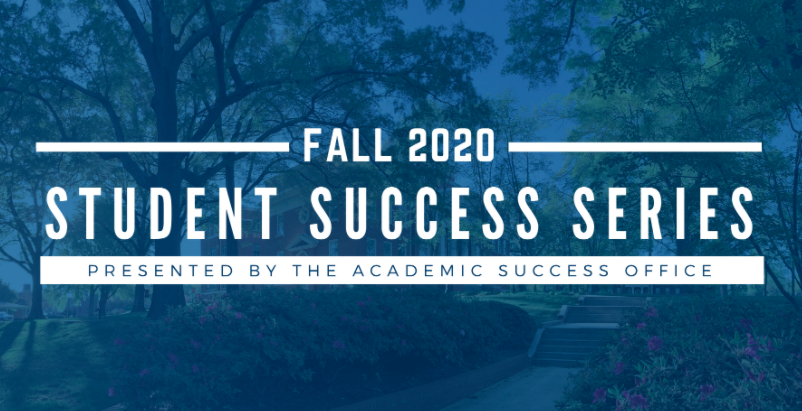Better sleep helps with grades
October 21, 2020
The PC Academic Success Office recently held a workshop to illustrate the importance of getting enough sleep while in college.
Sleeping is one of the most important things that a person can do in order to maintain a healthy lifestyle. With enough sleep, people can be ready for the day to start without feeling tired and overwhelmed. Sleep also relaxes the body from a long day.
However, when most people go to college, they struggle to get enough sleep due to the rigorous amount of academic work needed to be successful. Many students also participate in sports or other extracurricular activities, which leaves even less time to get the proper amount of sleep. Because of these commitments, most people will either pull an “all-nighter,” or get up early in the morning to complete their work.
Even though college is full of challenges, a recent workshop held by the PC Academic Success Office shows that if students use their time wisely, they can fit in seven to nine hours of sleep each night while in college.
In fact, getting more sleep can help a student’s overall college experience, and can earn them better grades!
Held by Dr. Amy Davis of the PC Academic Success Office, the “Better Sleep=Better Grades” workshop provided students with the necessary tools and advice in order to maintain proper sleep and to enjoy it during their time at Presbyterian College. This is because obtaining good sleep is critical to good academics and to a person’s physical/mental health.
During the workshop, Dr. Davis showed data from the National Sleep Foundation on how students need to get seven to nine hours of sleep each night, as well as having good sleep hygiene, which includes a variety of different practices and habits that are necessary to have good sleep quality and full day awareness.
The key to having good sleep, according to Dr. Davis, starts with your environment and surroundings.
A room environment that is clean and well organized is very critical to having good sleep habits. You also need a nice comfy bed and a neat space to have an uninterrupted sleep, which includes a good mattress, pillows, and bedding. Another good tip is to cover your windows, turning all electronics off (with the exception of fans), listening to music with consistent beats, and even spraying your bed with a diffuser that contains essential oils. This also means turning off Tik-Tok at least thirty minutes before bed, according to Dr. Davis!
As for student athletes, Dr. Davis debunked the myth that they need more sleep than other students, but she did say that eight to nine hours of sleep are recommended by the National Collegiate Athletic Association. Student athletes are at risk for sleep difficulties because of scheduled practices, travel, competitions, and the extra time they require to balance athletics and academics.
Dr. Davis pointed out that thirty to fifty percent of college students take naps. It is recommended to take naps early in the day and to take naps that last twenty to thirty minutes, so that they don’t affect academic performance.
The main consequences of a lack of sleep are increased likelihood of illness, stress, weight gain, mental health issues, decreased sense of alertness, and lesser academic performance.
At the end of the workshop, Dr. Davis provided some last-minute tips on how to establish good sleeping habits: exercise regularly, cut out caffeine prior to bedtime, and get a diffuser to help with breathing.
For more information on how to get better sleep, learn more information on the importance of sleep, or to figure out what sleep habits work best for you, visit startsleeping.org or sleepfoundation.org.






